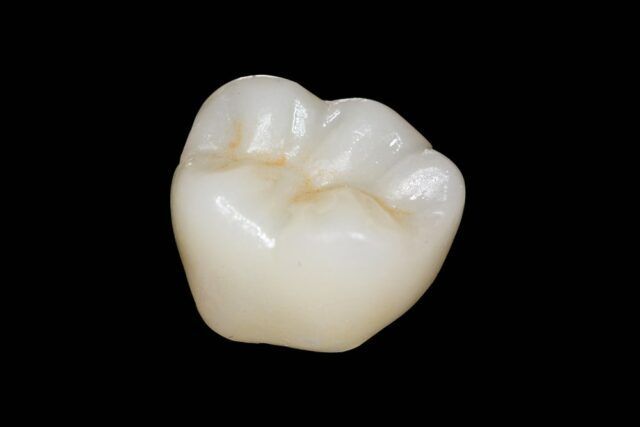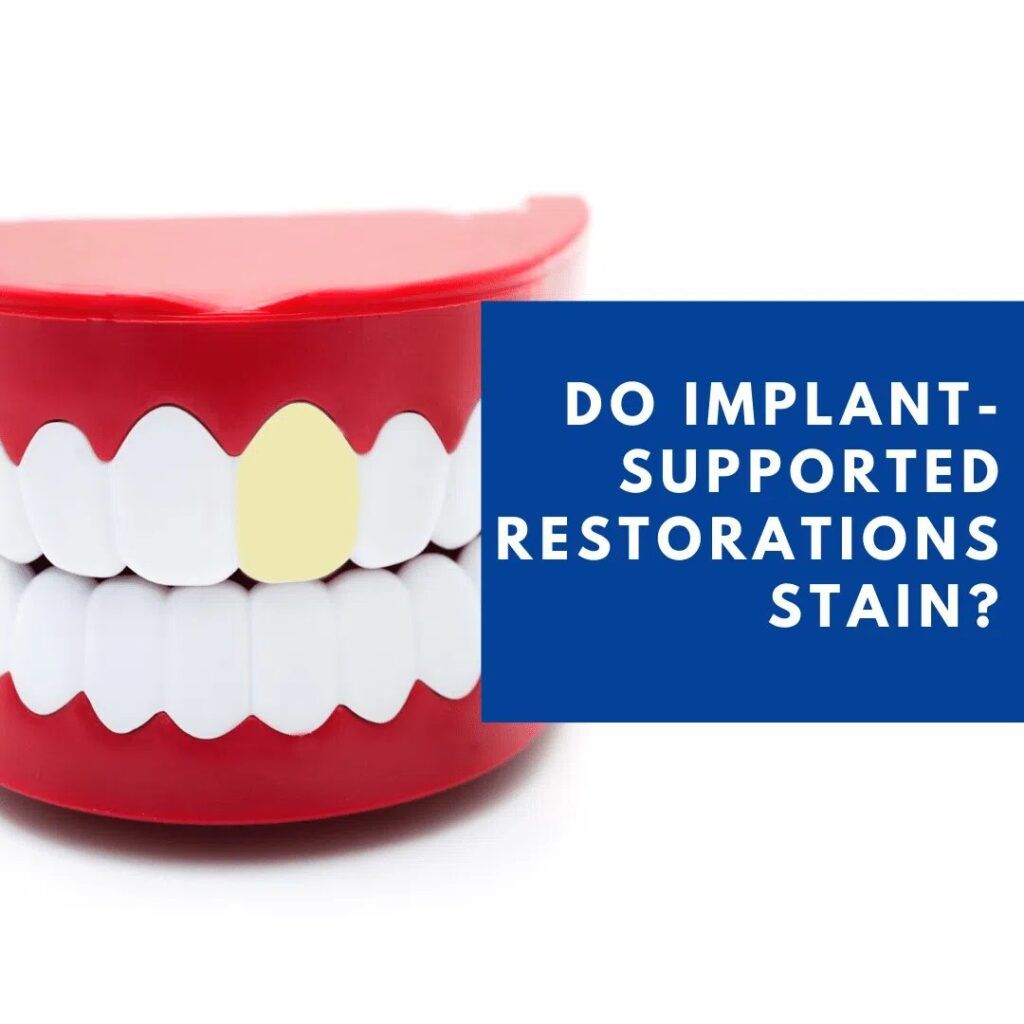Whether you already have an implant-supported restoration or you are considering having dental implants placed to support a dental restoration, you may be wondering if these restorations will ever stain. After all, one of the main reasons people decide to have dental implants placed is due to aesthetics, so it is important to know whether your restoration will maintain its color or not. To answer this question, there are a few things that you need to consider.
Dental Materials
There are different types of dental materials that can be used to fabricate the crowns, bridges, and dentures that are supported by dental implants. Since aesthetics are one of the primary concerns when having implants placed, these materials are also highly aesthetic. Two of the most common dental materials used to fabricate implant-supported restorations are porcelain and zirconia. Both materials are categorized as being ceramic, however zirconia is technically a metal. Here is a brief overview of each material:
Porcelain
Porcelain is a highly aesthetic dental material that has been extensively used for the fabrication of dental crowns, bridges, veneers, and cosmetic dentures. It is valued in the dental industry for its durability and ability to customize its color precisely to match any surrounding teeth. It is also resistant to most stains, although it has been known to stain slightly when regularly exposed to coffee, tea, wine, and nicotine.
Zirconia

Zirconia, more specifically zirconium dioxide, is a recently developed dental material that is being used for the fabrication of dental crowns, bridges, veneers and cosmetic dentures. Zirconium dioxide is a metal that is closely related to titanium, however it exists in a white powder form that can be shaped and pressed to resemble a natural tooth. This material is also extremely strong, resists corrosion, biocompatible, and can be customized in terms of texture, coloring, and translucency to resemble natural teeth. Zirconia can resist stains from coffee, tea, wine, and nicotine.
Type of Restoration
Another thing you will need to consider is the type of restoration. Dental implants can be used to support crowns, bridges, or dentures, depending on how many missing teeth are in need of replacement. While crowns, bridges, and the fake teeth on dentures are all fabricated from the same dental materials, you will need to keep in mind that certain restorations only affect certain teeth. For example, if you have a single implant-supported crown placed, then you will still have the remainder of your natural teeth present. In cases where an implant-supported bridge is placed, you will also likely maintain some natural teeth. The only time you will not have any remaining natural teeth to worry about is when you have an implant-supported denture placed.
The type of restoration is important because you will need to keep in mind that your restoration will react differently to things that cause stains than your natural teeth would. This is because the materials used to fabricate your restorations are different from tooth enamel. Tooth enamel is extremely porous, meaning that it absorbs colored pigments. Porcelain and zirconia restorations, on the other hand, are sealed so that they do not absorb colored pigments. This means that any surrounding natural teeth can potentially change color while the restoration will stay the same color.
It is also important to note that neither porcelain or zirconia restorations will respond to teeth whitening treatments. Again, this is due to the fact that the restorations are sealed, as well as the fact that teeth whitening treatments are designed to be effective on porous tooth enamel. In some cases, having your natural teeth whitened can inadvertently make your implant-supported restoration appear darker or more stained than before. This is simply the result of the surrounding teeth becoming lighter in color.
How You Care for Your Restoration

The final thing you will need to consider is how you care for your restoration. When properly cared for, most porcelain and zirconia restorations do not stain because the restoration is sealed to prevent the development of stains. With that being said, it is possible for both porcelain and zirconia crowns to stain if they become damaged. This is because chips, cracks, or excessive wear can compromise the protective seal and leave the restoration open to colored pigments. Although dental materials will still not stain as easily as natural teeth, they can develop colored tints when this seal is damaged. Therefore, it is important to care for your restoration as directed by your dentist.

